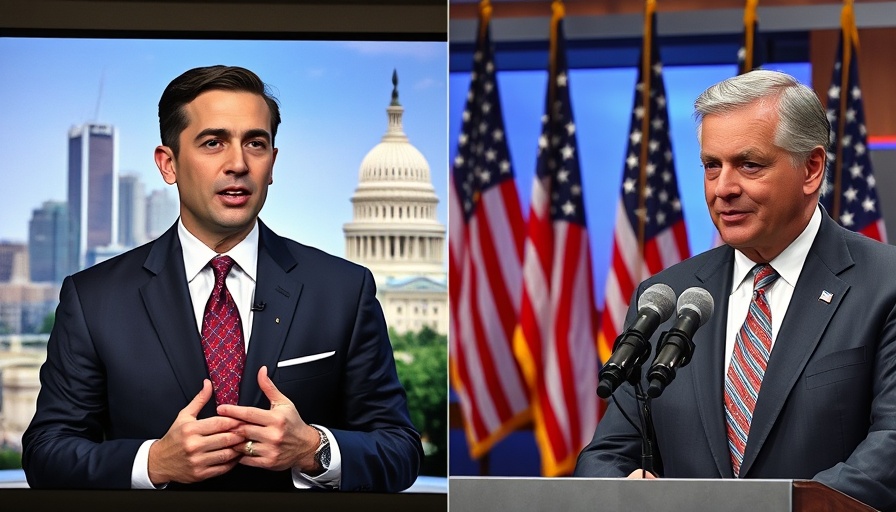
MSNBC's Controversial Assertion and Subsequent Correction
In the fast-paced world of news broadcasting, accuracy is paramount. Recently, MSNBC's "Morning Joe" experienced a significant blunder when co-host Jonathan Lemire claimed that Kash Patel, the FBI head, spends more time at nightclubs than at work. This assertion raised eyebrows and created a flurry of responses from audiences and critics alike. The statement was later deemed a "misstatement" by MSNBC, leading to a public acknowledgment that the claim had not been verified.
Reactions from Media and Public
The incident sparked widespread conversation regarding media responsibility and the consequences of unchecked claims. The media's role in shaping public perception cannot be understated, and when prominent outlets misstep, it raises questions about their commitment to factual reporting. Viewers expect integrity from their news providers, particularly in contentious political climates. The correction issued highlighted the importance of journalistic verification processes, drawing attention to how easy it is for misinformation to spread, regardless of the medium.
Implications for Mainstream Journalism
This incident serves as a reminder of the potential pitfalls in modern journalism amidst a landscape inundated with breaking news and fast-paced narratives. With the advent of social media, news outlets often find themselves in a race to report first, sometimes at the expense of accuracy. Analysts argue that rigorous checks on information should remain a priority, particularly when the national discourse is closely tied to individual reputations and careers.
The Role of Fact-Checking in Today's News Environment
The essential nature of fact-checking in journalism cannot be overstated. As narratives evolve and news travels at lightning speed, factual integrity is more crucial than ever. In a politically charged environment, claims often take on a life of their own, influencing public sentiment and individual opinions before corrections can follow. The consequences of misinformation can lead not only to public mistrust but also to active disinformation campaigns that further skew opinions among citizens.
Historical Context: The Evolution of Media Accountability
Historically, the media has faced challenges regarding accountability, especially during times of political upheaval. Similar situations have arisen in the past, where the media's rush to report has led to significant public misinformation that had lasting effects on political and social climates. For instance, leading up to major elections, details can become distorted, influencing voter perceptions severely. The need for accountability and transparency remains a cornerstone of responsible journalism.
Future Predictions: How Will Media Evolve?
Looking forward, the media landscape is poised for significant evolution. With heightened public scrutiny and an increasing emphasis on accountability, it is likely that institutions will need to adopt more robust verification methods. This might include employing more fact-checking personnel or utilizing AI tools to assist in curbing misinformation. Additionally, there may be a rise in collaborative efforts among news agencies to standardize fact-checking processes across the board, ensuring that credible news prevails.
Calls for Stronger Regulations
The protracted discussion surrounding media accountability has also drawn calls for regulations that could mitigate the spread of misinformation. Stakeholders argue that more stringent standards of accuracy in reporting must be instituted to regain public trust. Such measures could foster a more informed electorate and promote a healthier democratic process.
What This Means for You
As consumers of news, it is essential to remain vigilant regarding the information we ingest. Diversifying sources of news can lead to a more well-rounded understanding of events. Engaging critically with news allows for a community's voice to shape media narratives positively and encourages journalists to adhere to high standards of reporting.
Conclusion: The Call for Responsible News Consumption
In light of the recent MSNBC incident, it's vital for consumers to demand accuracy and accountability in journalism while recognizing our own role in shaping media behavior. By engaging responsibly with news articles and holding media accountable, we can all contribute to a culture of integrity and respect for the truth in news broadcasting.
 Add Element
Add Element  Add Row
Add Row 



 Add Row
Add Row  Add
Add 


Write A Comment